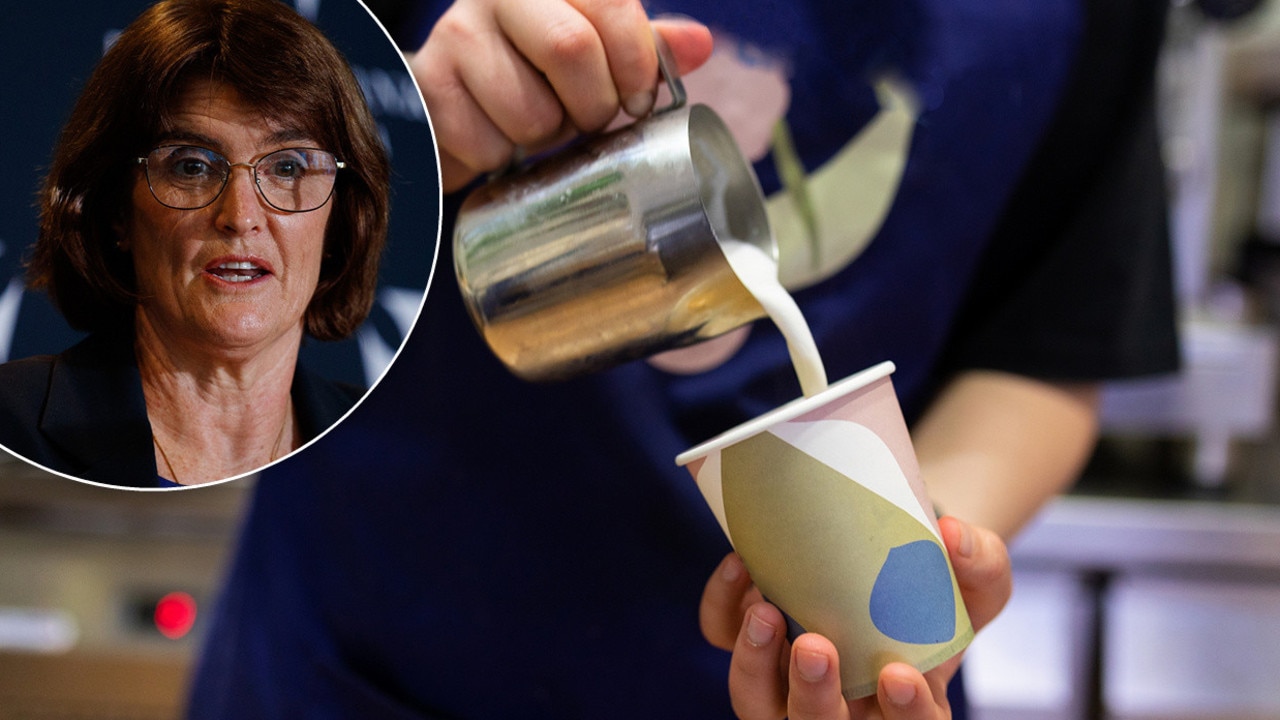Qld rental crisis forcing more people to live in cars, tents
Entire families are being forced to sleep in their cars, faced with the possibility their children could be taken away as the rising cost of living and rental crisis leaves people no other choice.
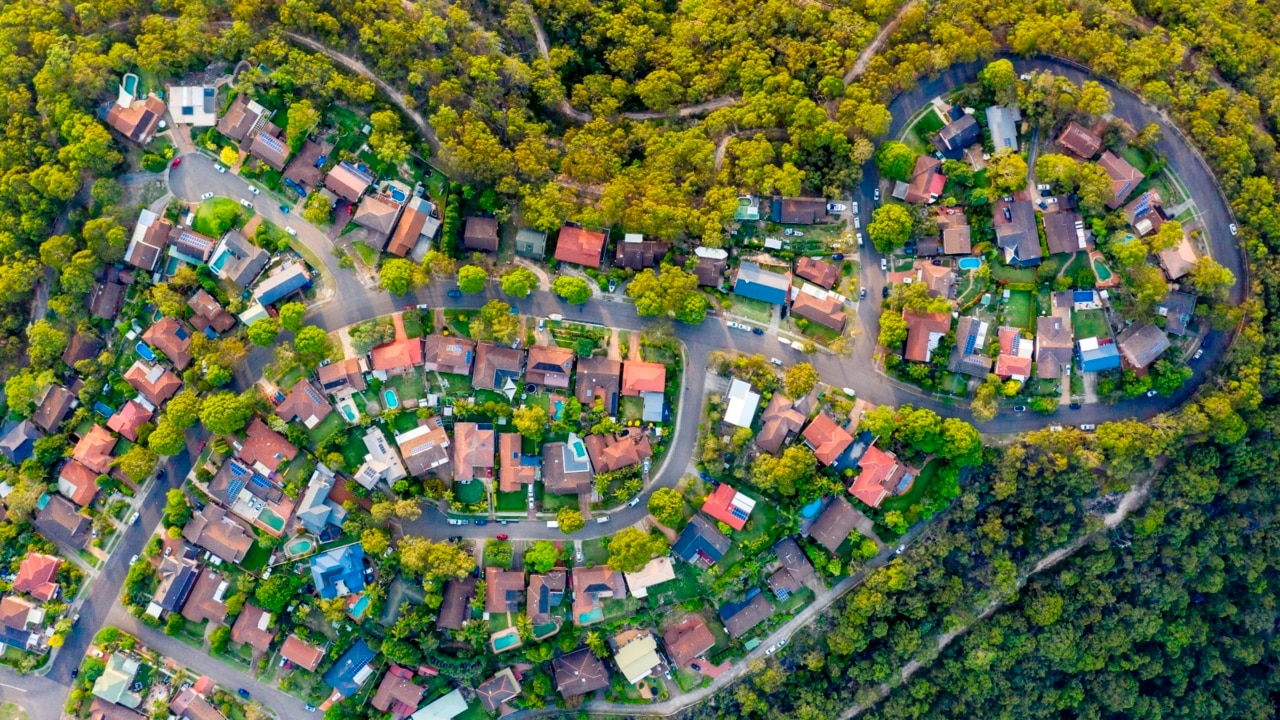
QLD News
Don't miss out on the headlines from QLD News. Followed categories will be added to My News.
Entire families are being forced to sleep in their cars, faced with the possibility their children could be taken away as the rising cost of living and rental crisis leaves people no other choice.
As more Queenslanders struggle to secure affordable living and are driven to live on the streets, several councils have worked on new strategies to better the situation, with Moreton Bay Council funding a sleep bus – a mobile temporary accommodation service – and Redland City Council looking at more shower options.
Lord Mayor Adrian Schrinner said there was no doubt more people were sleeping in their cars.
Mr Schrinner said public space officers in Brisbane were working hard to link homeless people with the assistance and services needed but were being told by community accommodation providers nothing was available.
“There’s no doubt that more and more people, including children, are being left with no choice but to sleep in cars and tents in locations right across Brisbane which is absolutely heartbreaking,” he said.
“Accepting people living in cars and tents is giving up.”
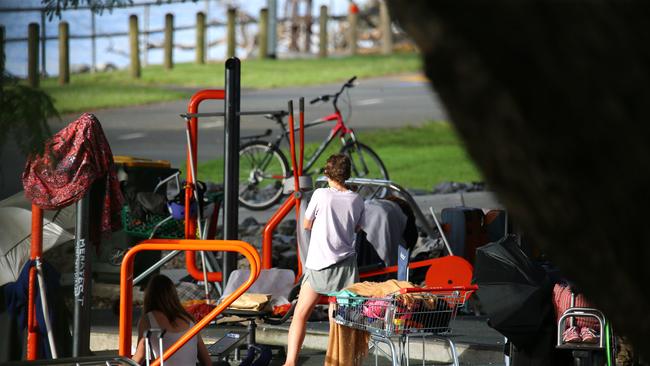
Kyabra Community Association intake and assessment team general manager Shirley Gration-Collins said it was a different face of homeless typically seen on the streets.
“People who are contacting us and may be sleeping in their car have not had the experience of needing to contact the service before,” she said.
“It’s different people in the community who are being affected by the housing crisis.
“People who are doing the best they can to keep their families safe together, they are working, they are going to school.”
Ms Gration-Collins said a concern for those families was being able to afford the car registration.
”The car keeps them safe, it keeps them connected,” she said.
“It might be the only way to connect with families or services and also it’s very hard to get to and from or find work without a car.”
Vinnies Queensland chief executive Kevin Mercer said the organisation was resorting to paying car registrations to help entire families with two or three kids, all sleeping in the one vehicle.
“When no housing options have been available, sometimes the best we’ve been able to do is support families to pay their registration to keep the car that has become their home,” he said.
Mr Mercer said parents faced a serious risk of losing custody of their children while homeless.
“For parents sleeping in their cars, they go to bed each night terrified at the thought of waking up to a knock on the window from someone with the power to make them lose their children,” he said.
“That’s something no one should have to experience, especially not in Queensland.”
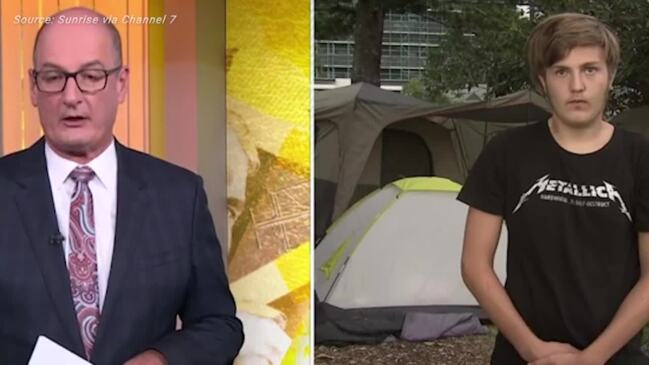
The issue isn’t just for families. Young Queenslanders who are studying are also being forced to live in their cars.
“You have the cohort of young people who have jobs, we know they are going to uni but you can’t sustain jobs and studying if you are sleeping in a tent or in a car, it’s just not possible,” Brisbane Youth Service chief executive Pam Barker said.
But youth services are having to go to new measures to support the increasing demand. The demand for support has risen by 88 per cent in three years, and from February 2 to March 13, 999 responses for support had been provided.
“What we know is children and young people generally don’t sleep in cars or sleeping bags, they generally couch surf, but the numbers are increasing so quickly,” she said.
“We have been giving away sleeping bags because there is no bed options for them to sleep safely.”
Several councils across Brisbane have noticed an increase in families living in their cars. Logan City Council, Moreton Bay Regional Council and Brisbane City Council refer people living rough or in public car spaces to specialist homelessness services for assistance.
Moreton Bay Mayor Peter Flannery said the council was working on addressing the issue where they could lobbying the state and federal government for support.
“Moreton Bay certainly isn’t immune to this growing concern, with homelessness numbers increasing by 92 per cent between the 2011 and 2021 Census results,” Mr Flannery said.
But the council has a few plans in place to help the issue.
“Separately we’ve funded $50,000 for them to purchase the region’s first ever Sleepbus which is a mobile temporary accommodation service that can provide over 7000 safe sleeps per year,” he said.
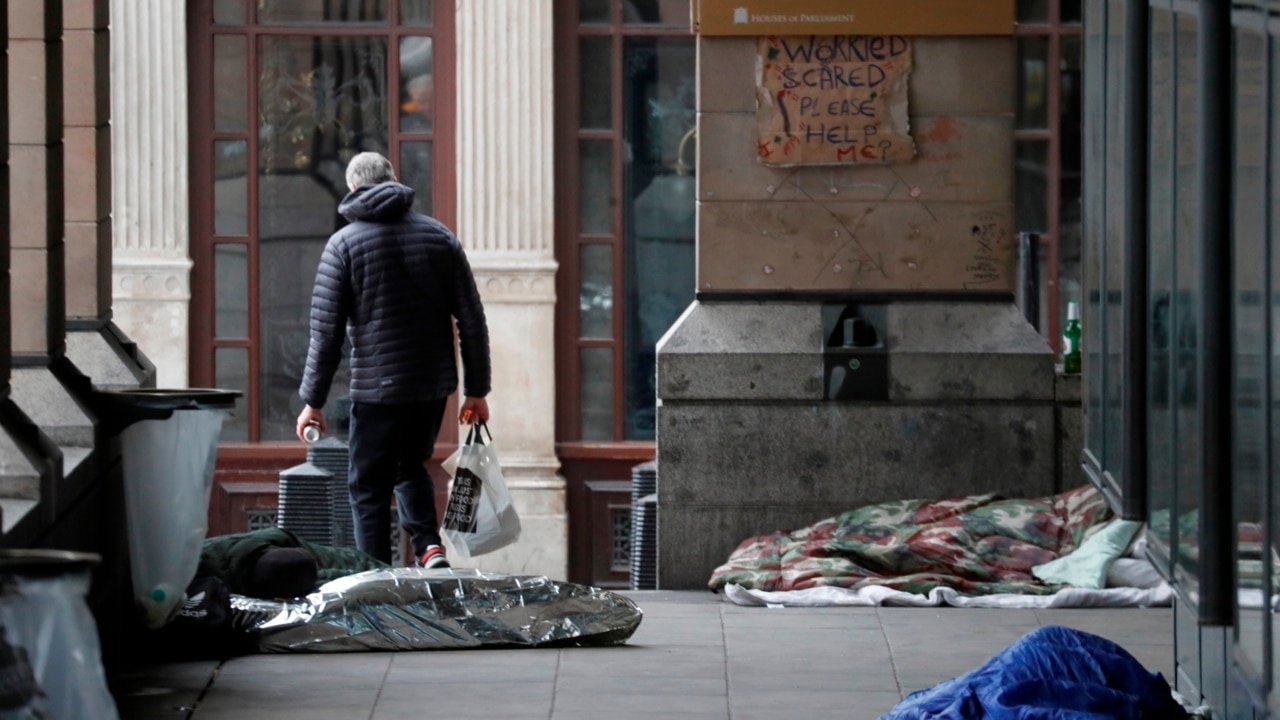
“The Sleepbus also allows us to direct people in need on to other vital services to help get the support they need to hopefully get them back on their feet.
A Logan City Council spokeswoman there were also facilities in the area that could help.
“Council also provides free internet access and power points for mobile device charging at Logan Libraries, so those impacted by rising costs and shortages in the housing and rental markets can find and connect with local support services,” she said.
Some councils are considering creating more facilities for homeless families.
“Council works closely with a number of organisations that are funded to provide housing and homeless support, including Footprints Community, Q Shelter and Bayside Housing Service Centre,” a Redland council spokesperson said.
“Footprints Community has a shower bus that is used by people experiencing homelessness in the city and council is currently working on an additional option for showers.”
Mr Schrinner said he wanted the federal government to open the 500-bed quarantine facility at Pinkenba.
“I call on the federal government to work with their state counterparts to get the Pinkenba facility open as soon as possible so people can get out of their cars and tents and into proper accommodation,” he said.
It comes as Orange Sky CEO Lucas Patchett said they had “never been busier”, with their services having increased 22 per cent since last year.
“From what we have been hearing from our volunteers on the ground we have been seeing lots of new faces needing support out on shift over the last two years, as more and more people are experiencing hardship due to the rise in cost of living and the rental crisis,” Mr Patchett said.
He said volunteers had also reported seeing an increase in people living out of their cars or in tents.
Minister for Communities and Housing Leeanne Enoch said the government was investing in specialist homeless services with annual funding of more than $166m.
“It’s heartbreaking to hear stories of families and young people sleeping rough,” she said. “Last year we launched Towards Ending Homelessness for young Queenslanders 2022-2027, a framework co-designed by young people and the Queensland Youth Housing Coalition to tackle youth homelessness.”
She said the government was investing in youth foyers.
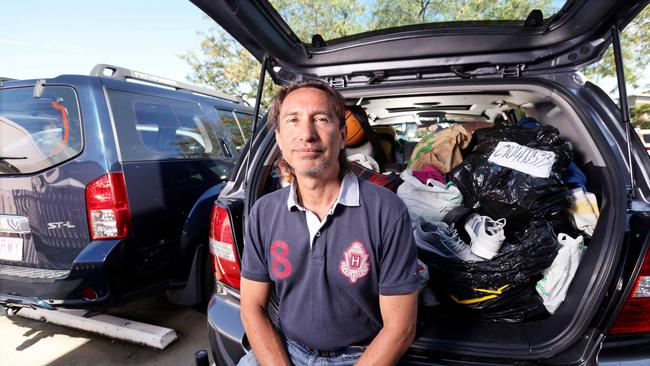
‘IT’S BAD NOW BUT LIFE IS GOOD’
A former construction worker forced to live in a rental car says all he wants is a job after he was injured in a horrific car accident.
Omar Suarez has been living in a few different rental cars over the past four weeks, with the hope he can get a rental after he had to move out of his last place.
Mr Suarez said he was working hard to find a job and improve his new skill set but his injuries left him unable to do what he loved.
“I was on my motorbike and another lady in a car was coming towards me,” he said.
“I had to use my emergency brakes and my motorbike lost stability and fell and I slipped through the floor.
“ I got flung over the top of the motorbike and went straight to the floor.
“I’ve got injuries in my knees but the other parts of my body got trauma and I was wearing a helmet.”
Mr Suarez has been working with Skilling Queenslanders for Work and has done more courses in construction but has been unable to work in that field with those injuries.
“My problem is when I try to do the hard work I feel the pain in my knee and ankle,” he said.
But he hoped to get more work as a handy man. He keeps his tools in his car, in hopes someone will call him.
He said living in his car had not been easy.
“It’s hard – living in a car is hard because I like to cook my own food,” he said.
“I like cooking but to survive you need to buy food in cans and every time you eat the food it’s cold because you aren’t able to heat it up.”
Mr Suarez drives to public bathrooms and tries to keep to himself but he said despite all his problems he was trying to be positive in life.
“I smile all the time – I try to keep a positive attitude because I say if you live in stress or you live with concern about living in the car, your life will be rubbish,” he said.
“You need to have a positive attitude … life is good, this is just temporary.”
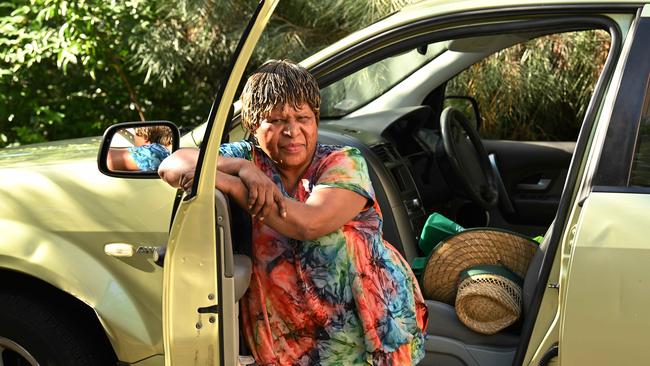
FULL-TIME WORKER REJECTED 36 TIMES
A woman who has had to live on the streets in her car despite working full-time says she filled out 36 rental applications and thought she had no hope of finding a place.
Betty Zimike had to live in her car for about six months while she was looking for a house even though she was working full-time for the past 14 years.
Ms Zimike thought it was never going to end.
“I didn’t think it was going to end. I thought it was going to go on and on forever because of the rejection you get from 36 applications, you know it sounded like, I am not going to beg to pay for rent,” she said.
“So I thought forget it, I am just going to stay on the street that’s what I did.”
Ms Zimike was eventually put up in an apartment by the Salvation Army but said she didn’t feel safe when she was living in her car.
Ms Zimike said even though she worked very hard doing shift work it still left her without a home.
“When I was living in my car, I felt very unsafe. I was never comfortable, I didn’t feel secure, like you do when you have a home,” she said.
“I could never sleep properly, I was always alert. It’s not a great way to live,”
Ms Zimike said she used to drive all over the place to find a safe spot.
“I had to move around, you can’t stay in one area,” she said.
“I had to stick to myself, because you are just going around sleeping on your own.
“I found it very difficult and at my age, its not really good for a little old lady to go around like that.”
Ms Zimike found herself using public toilets, showers and charity Orange Sky to wash her clothes.
But what brought her to the situation in the first place was being asked to leave her rental – she was given two weeks to move out.
“The rental market, I think it should change because people that are working can’t afford it,” she said.
More Coverage
Read related topics:QLD housing crisis




